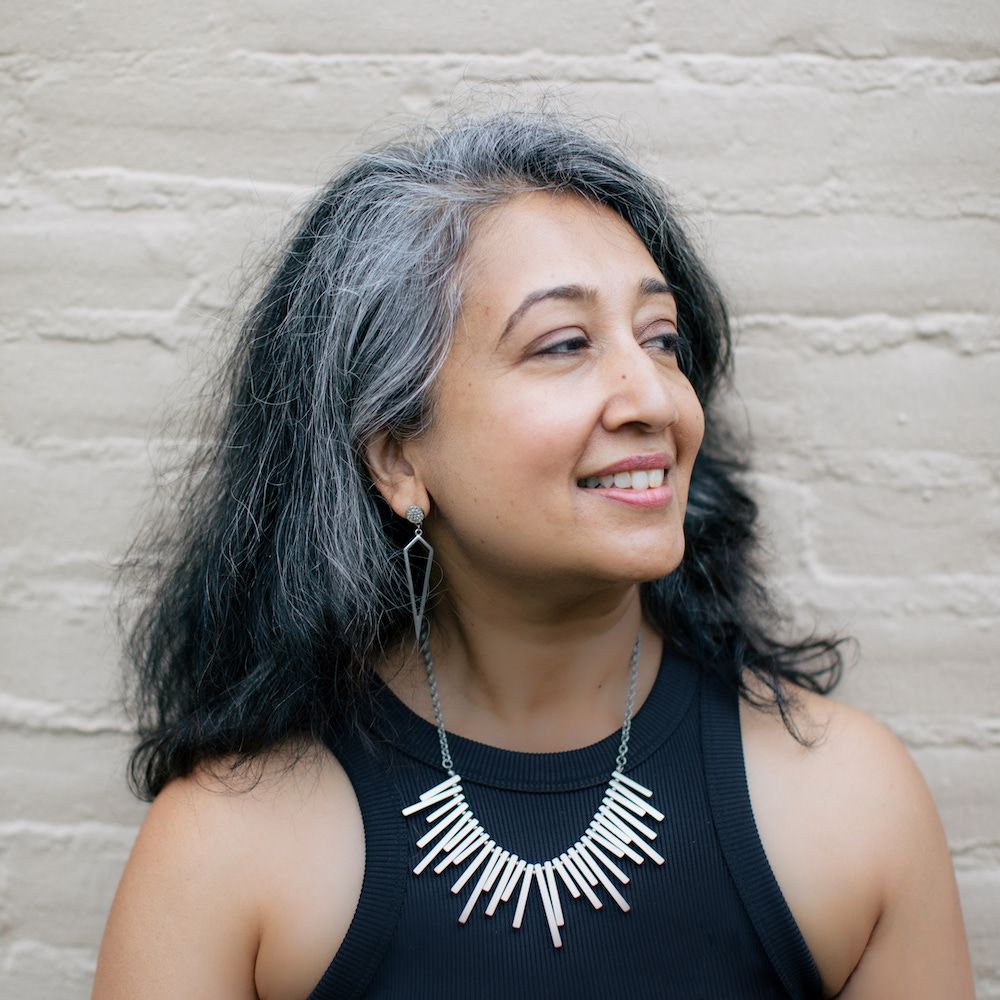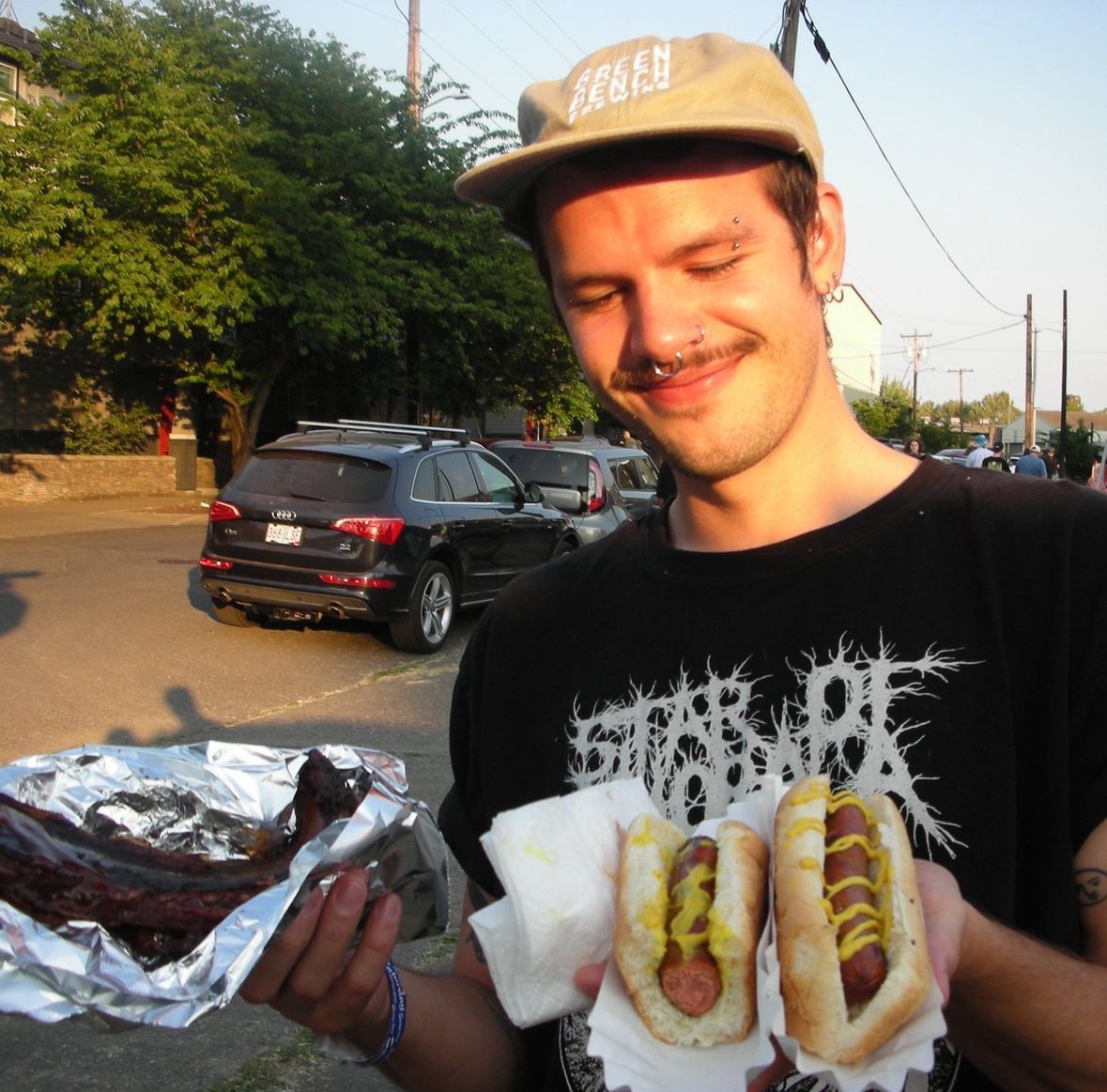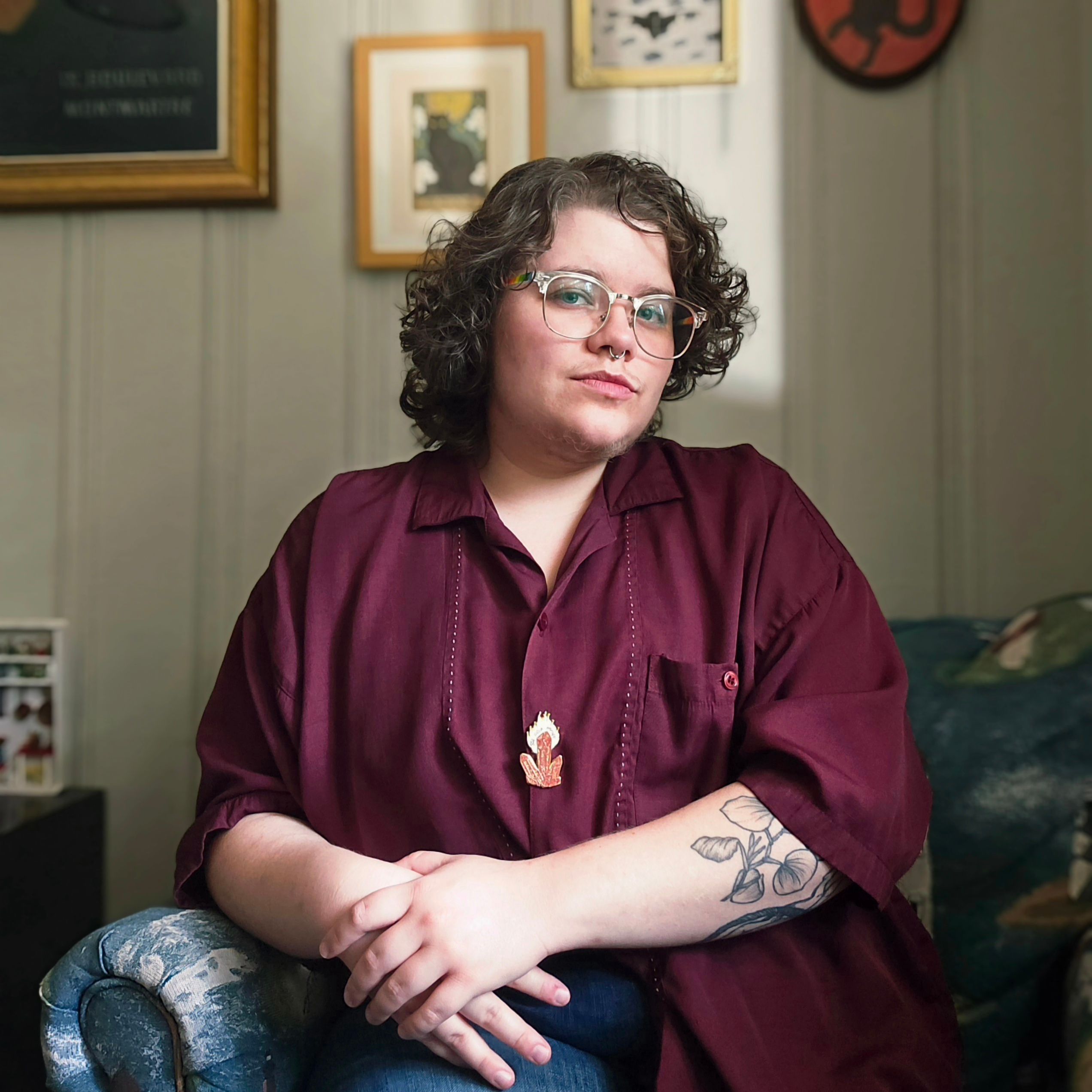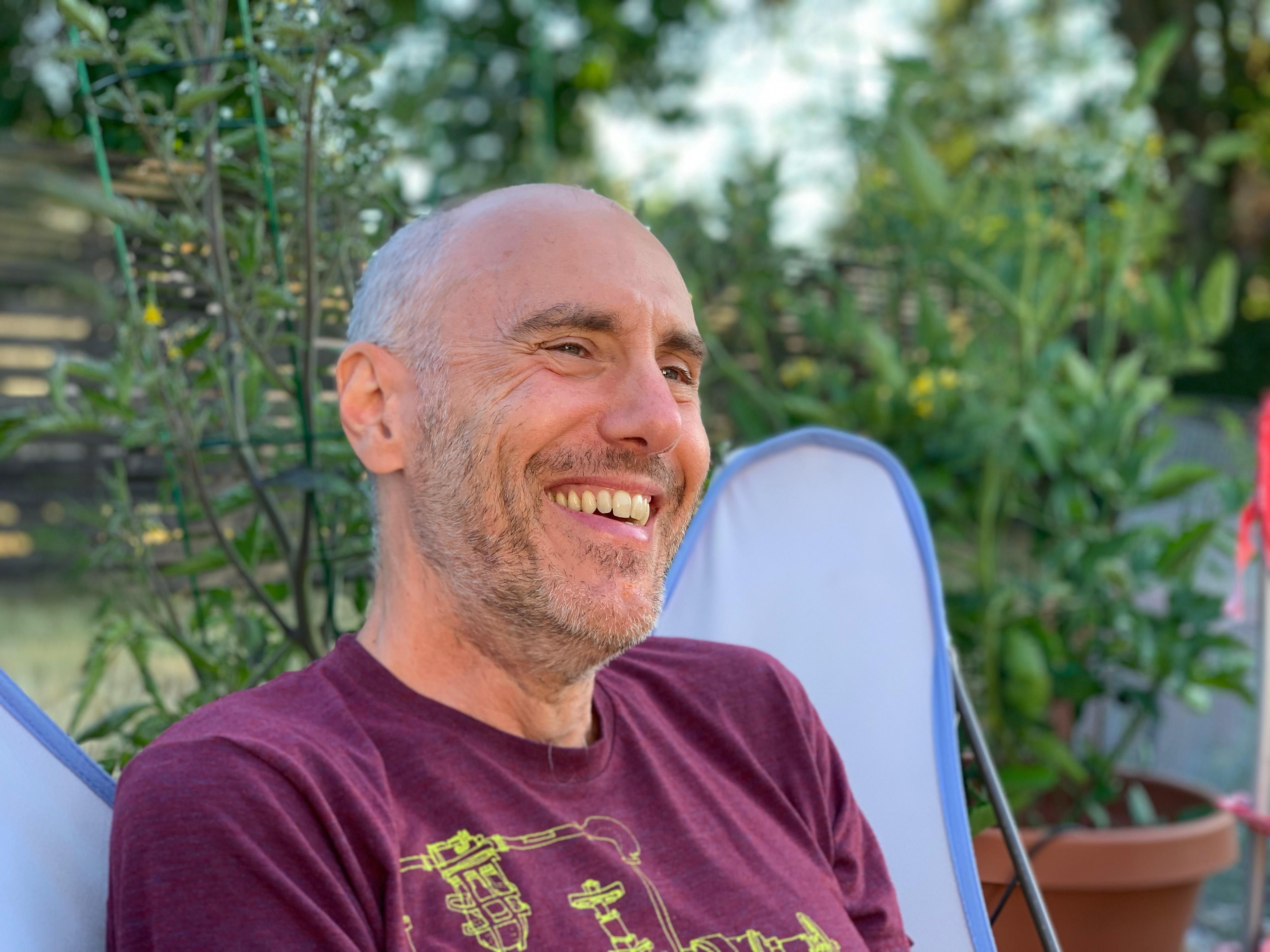Jep Streit: I’ll begin our conversation by acknowledging that we've been friends for well over 30 years. We met at the weekly writing group hosted by the late writer Andre Dubus at his home.
Peter Orner: I'm starting a story dating to that time, and I was like it's 30 years ago!
JS: I remember at that time you were in law school, but you're always so clear about what an influence Andre had on you. I'd like you to reflect, if you would, about that group—what it meant to you and what you learned from it.
PO: We had this lucky thing happen to us—Andre opened up his home to us. Sometimes something happens to you, and it's just total luck. I mean I wouldn't do this at all right now, I'm sure, if it wasn't for that. I would have gone on a completely different direction in my life I think.
The group—it wasn't just Andre really, and I've always said this—it was so bizarre to have a group of people who dedicate themselves every week to listening to other people's stories. The trick of that group was that we read the complete pieces out loud. You didn’t have to prepare ahead of time, you just had to get some headspace. Once you entered that living room, there were just donut holes, some water maybe, and the kind of sustained attention and thinking, concentrating on other people's stories. That's what he taught us. He didn't say much about what we were working on that I remember, other than the way that he would listen, and the way that he would sigh when he liked something. His generosity was extreme.
JS: There was a sense of equality in that he shared what he was writing, asked us to react. His wisdom was just so profound; he would remember things, and it was just so grounding and nurturing, it was like this really, really mattered.
PO: I think that's it, it mattered. He didn't read a lot, he read a few times. There was kind of a rotation, I was always wanting to read, I always had stuff (laughing). I went through the cycle a lot. Some people would read every once in a while, and Andre was one of those, but when he did, God knows it was memorable.
JS: I think of him as maybe your first mentor, and then I know you went to Iowa and got connected with Marilyn Robinson. I sense that she also was a huge mentor to you, so please talk a little bit about that relationship and what you learned from her.
PO: I’m rereading Gilead right now. Andre sent out stories for me without telling me, he got them published in Epic. He suggested that it was time to devote more time to this. He was pretty keen on Iowa, where he had gone.
Marilynne Robinson was definitely somebody who I became very close to and I was incredibly lucky to work with, not unsimilar to Andre in the sense that she never said that much about the work. These are incredibly accomplished fiction writers, and they taught fiction by not talking too much about fiction, I think, if that makes sense. I think there's a way to over-talk this stuff. I've always tried to emulate that, probably to my students’ frustration that I don't edit enough, I don't give enough feedback.
One time I wrote a story up for her, about some people hanging out in an all night restaurant in Iowa City, mostly verbatim what I'd seen the night before. It just wasn't working. It wasn't a great story and I went to her office hours, this is early on in my time (laughs), I went to her office hours, and I said “Marilyn, it just seemed like the story wasn't working for you. Why?” And she just stared at me for what felt like 18 hours. I learned to never ask that question. Nobody knows how to make your story better. Honestly, I fundamentally believe this, at its core. And what she did was tell me I’ve got to make it better myself. I should never have asked that question. Go back to work, don't ask somebody else to do your work for you.
JS: The breadth of your work is astonishing in terms of essays, novels and short stories, but I think of you as a fierce advocate for short stories. I have this quote from your book Am I Alone Here, from your essay about Frank O'Connor. You say “O'Connor speaks up for stories and the people who write them—and in doing so the people who read them—as few ever have. Even today, fifty years later, for most fiction writers, and certainly for most publishers, the novel, come hell or high water, remains supreme. . . . This has always confounded me. I'm with O'Connor.” Then you list Checkov, Welty, Mavis Gallant, Grace Paley, Andre. You ask, where's the mighty Borges novel? You wrote this about seven years ago and I wonder if maybe the tide might be changing; does it feel to you that short stories have more respect? I feel as though people appreciate them more these days. George Saunders, his books are on the bestseller list, he's widely read and championed. Am I being overly optimistic?
PO: Saunders is an interesting case, I guess there's something to it. Maybe I’m protective of the form, short stories. They've had renaissances, people used to make a living by publishing stories. Faulkner would take time out from his novels to write stories so he could make a living. I don't think that the short story is ever going to have a place that has commercial relevance in a large scale. There’s always going to be that pressure that's put on a young story writer or an old story writer or whoever storywriter to give a longer piece of work.
But then again, I think it is a form, like poetry, it's harder to read a collection of stories, that's why they're not popular. It's that stopping and starting. Andre made the argument once, and it's forever instilled in my brain, that stopping and starting is more like life. Short story collections aren't necessarily escapist, in the sense of the novel you immerse yourself. There’s something about stories that I think cut. When they're good, they cut deeper than almost anything. That’s what I've always thought.
JS: I think that's right. When I think about your writing, your essays, I'm struck by your reading habits. It feels like either you're always reading or always thinking about something you read. That can't literally be true...
PO: (laughs) I wish.
JS: But it feels like it. It reminds me of how important reading is. I’m going to come from my background as a priest to say it feels like a sacrament. Reading is so sustaining, and it's this treasure hidden in plain sight. I think you make a case for how urgent reading is. What would you say about that?
PO: I like that idea of urgency. Sitting in a chair, holding a book, quietly in silence, there's nothing outwardly urgent about it, but absolutely it's urgent. It's very, very urgent and always has been. Even if we're all reading on our phones, think about it, we're still reading. We're not reading in the concentrated and sustained way that I advocate for and can't live without.
There is something essential about it and it's strange; why aren’t we out in the world doing stuff? But I think reading is like the gas in the car that gets you out into the world and reminds you to get out into the world.
It’s weird that you say urgency because I've never thought of it that way, but I think that's really how I feel about it. I panic when I don't have a book. If I'm waiting in line at the bank or something and I don't have a book I literally start to panic. Now that's a problem, why can't I just observe? So I'm not saying this is always a positive thing, to have your nose in a book, it's not always to be out there.
JS: The other thing that strikes me about your reading habits is the breadth of your reading. You're always mentioning and noticing so many diverse writers; your openness to the world and to writers is really staggering to me. It feels like a good example; I tend to focus down on what I know and like, what's familiar.
PO: I think that's good, too. It’s good to ask yourself, why? Why do you know and like those things, then build off that. I read a lot in translation just because I want to cross those borders. I’m not very good in languages, so I'm stuck with English, but so many important writers to me aren't in English. I don't know why that is.
There was a wonderful thing that Milan Kundera talked about, finding foreign writers. To him, as a kid from Czechoslovakia, those foreign writers saved him. I’ve always taken that to heart, I'm always looking who might be there that I don't know. And that's a never-ending thing.
Susan Sontag was wonderful discovering foreign writers and championing writers from other places like Juan Rulfo from Mexico. I think of this wonderful writer out of Russia who wrote Summer in Baden Baden. (Ed: Leonid Tsypkin). Sontag wrote the most beautiful introduction to that. But she says about Sebald, I thought I’d covered everything, I thought I found everybody and then suddenly Sebald comes around. She should have known. Of course, Sebald is there, of course there's a Sebald out there you don't know about Susan, with all respect.
JS: How do you find how out who to read?
PO: Just go to a bookstore or library and they're there. We depend on these incredible publishers who have the guts to publish stuff that that doesn't sell, that have the weird lack of business acumen to publish stuff that doesn’t sell. Think of all the people we won't read that we should, that would change everything for us if we just knew about them, and we're going to die before we do. I think approaching reading from a humble standpoint, that to me is really important and not as if you’ve read everything. Bullshit. No one’s read everything. Impossible. I like to think, if there is a God, God's read that unpublished writer.
JS: (laughing) That’s the real example of God’s omniscience.
PO: Of course, God would know of the great Bulgarian who died when he was 30 and the manuscript was destroyed. It’s kind of a Borges story right there.
JS: I’d like to talk about your newest book, Still No Word from You. It’s astonishing. I think of it as Ulysses without literary flourishes and if Leopold Bloom were an avid reader. It’s a memoir, not a novel, all these moments in your life, some are quite dramatic: you grabbing a knife to stab your dad. Some are sort of quiet little moments, like your piano teacher Mr. Sandy giving you these lessons and you're such a bad student. Your mother listening from the next room. Talk about how that book came together and how you imagined it would work.
PO: Thanks, Jep. I think this is a repeat of a book I tried before, a kind of reluctant memoir. This is a book I actually wanted to do, this idea of really trying to tell lives, family life, through other writers, through other literature. It was a continuation of something I tried and thought maybe I could do it a little better. The pieces would just accumulate, always while I'm working on something else. In both cases the non-fiction was because the fiction wasn't going well. When the fiction's going, or doing something, I'm usually not writing non-fiction.
JS: Your reading life is so interwoven with your life, and it's completely natural.
PO: It’s what I want, for it not to be forced. There are pieces that were forced that didn't make it. Because what I read is so integrated into my general thoughts in the day it made sense that that they would go together. I’d be walking the dog and reading a book in the park and then something will come to me and it's related. I tried to not have separation. If I have a philosophy, and I don't really, but it's that you know that some literary criticism acts as if people aren't living while they're reading. To me that seems wrong. I’m not just studying these things as artifacts, I'm living in them. That is, I think what I often find missing about the way that people talk about books.
JS: What's it been like when you've done readings from this book? Has it felt different than reading from other books that you've done?
PO: I think it's more personal and that's awkward for me. I always consider readings a little bit of an out-of-body experience so I try to make it not about me. That's how I write nonfiction also, it's not about me. I'm a character, so that's protective I think. The readings seem to be okay. It’s hard to know. I enjoy giving readings but I don't enjoy it as much anymore for some reason. I just want to be quieter and by myself.
JS: Who are you a mentor to?
PO: I've got a lot of former students who've done very well and I'm very proud of. I don't know what they say exactly but sometimes I hear is, like Andre, like Marilyn, I’m not a very good critique-er. I think when someone has it they’ve got to find it their own way and I just want to give people the space for that.









